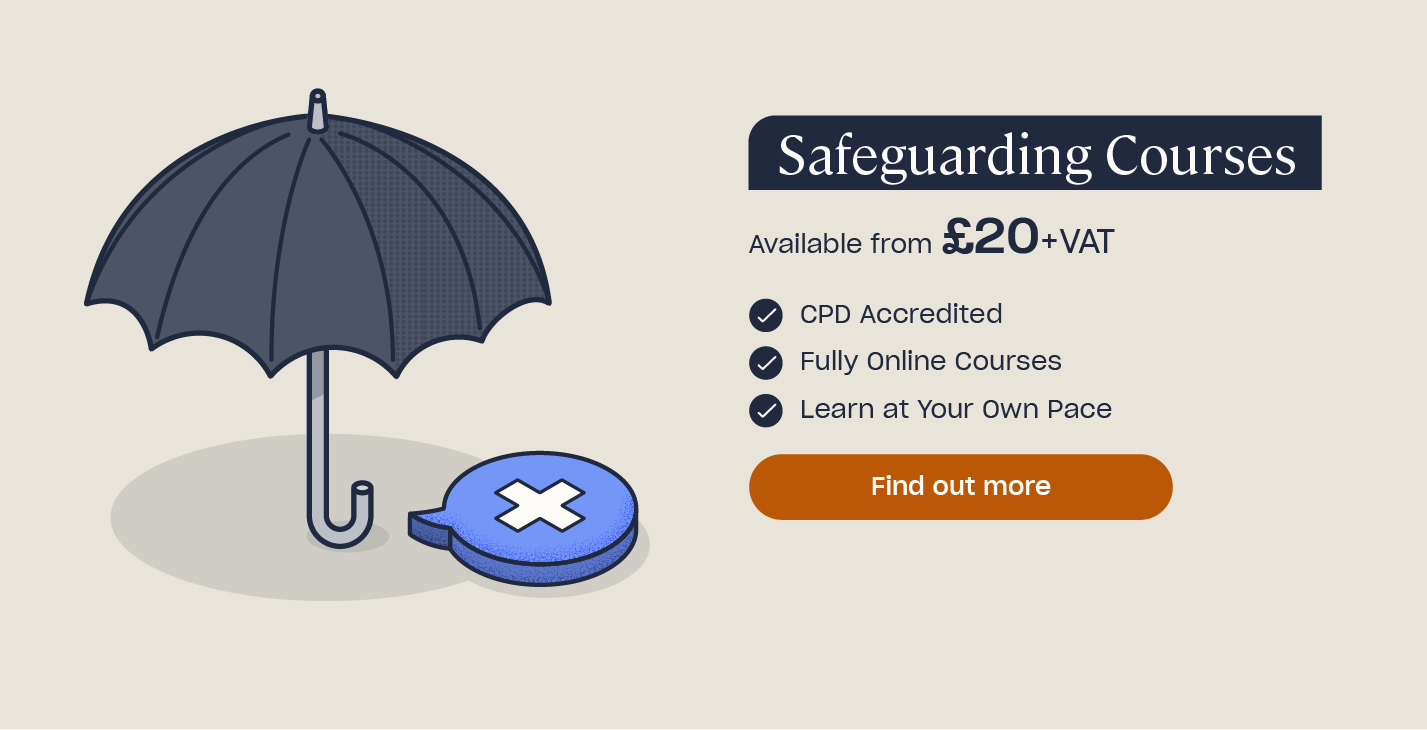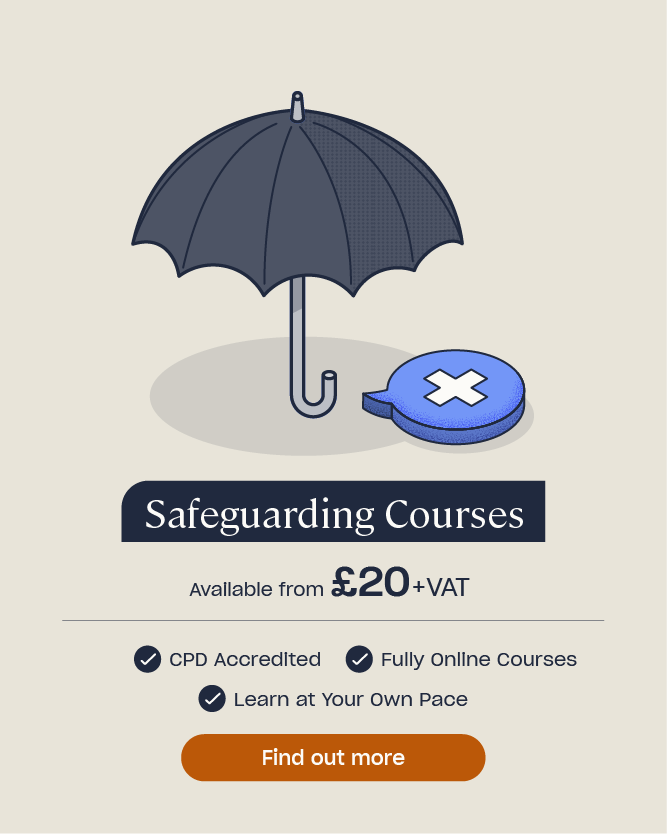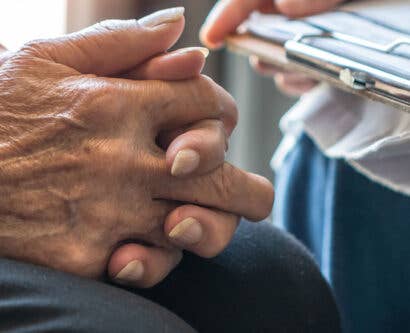Safeguarding Children and Adults at Risk: What is Regulated Activity?
If you work with children or adults at risk, the law requires you to fulfil numerous duties to keep them safe. In particular, you must not allow people who are barred from certain activities involving children and adults with care and support needs to work for your organisation.
Therefore, if you’re responsible for recruitment, it’s crucial to know what roles are classified as regulated activity. If someone applies for a job that involves regulated activities, you must carry out an Enhanced DBS check to determine whether or not the law allows them to do it.
This article will help you to understand exactly how the law classifies regulated activities and will explain the key differences between those involving children and adults. Knowing this, you’ll be able to prevent people from working in roles they are barred from and protect children and adults’ wellbeing.
What is Meant by Regulated Activity?
Regulated activity refers to certain roles that involve working with children or adults at risk, such as teaching and providing care. Anyone who is on the Disclosure and Barring Service (DBS) barred lists cannot work in these roles. Therefore, organisations who recruit people for regulated activities must legally carry out Enhanced DBS checks to check whether they are barred and to prevent them from accessing these roles.
Regulated activities are eligible for Enhanced DBS checks with children’s and/or adults’ barred lists. They reveal whether or not a person has committed criminal activity that makes them unsafe to work with children or adults.
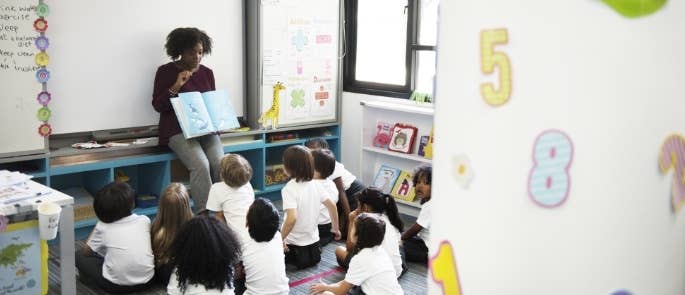
Allowing someone who is on the barred list to carry out regulated activities puts children’s and adults’ wellbeing at risk and is breaking the law. Therefore, it’s crucial for you to understand what types of work are regulated activities.
Fortunately, government guidance is very specific about which work activities are regulated and require an Enhanced DBS check. They divide them into two categories: regulated activity with children and regulated activity with adults. These each cover different types of work activities and apply to different premises.
Regulated Activity for Safeguarding Children
Regulated activities relating to children are split into two groups: work activities and places of work. It’s important to understand what each of these cover, as you must consider both when determining whether your organisation is carrying out regulated activities.
Need a Course?
Our range of Safeguarding Courses aims to provide you with the required knowledge to carry out your work whilst meeting your safeguarding training requirements.
Regulated work activities
According to government guidance, work activities are regulated if they meet the following criteria:
| Activities | Time period |
|---|---|
| Teaching, instructing, supervising, training, and coaching children. | This activity is regulated if it’s carried out by the same person frequently (such as once a week or more), 4 or more days in a 30-day period, or overnight (between 2am and 6am). |
| Delivering care, including physically helping children if they need assistance) due to an illness or disability). For example, with eating, drinking, toileting, washing, bathing, or dressing.
Care also includes healthcare relating to mental health, palliative care, and any procedures similar to medical or surgical care. |
This activity is regulated if it’s carried out by the same person frequently (such as once a week or more), 4 or more days in a 30-day period, or overnight (between 2am and 6am).
There are some exceptions however, where the activity is classed as regulated even if it will only be done once. |
| Providing advice or guidance wholly or mainly for children’s physical, emotional, or educational wellbeing. | This activity is regulated if it’s carried out by the same person frequently (such as once a week or more), 4 or more days in a 30-day period, or overnight (between 2am and 6am). |
| Moderating web services that children use. | This activity is regulated if it’s carried out by the same person frequently (such as once a week or more) or 4 or more days in a 30-day period. |
| Driving a vehicle in which children travel, such as a school bus. | This activity is regulated if it’s carried out by the same person frequently (such as once a week or more) or 4 or more days in a 30-day period. |
| Providing foster care, including privately. | No specified conditions. |
In some cases, the regulated activities that a person carries out are no longer considered regulated when they are being supervised (these circumstances are known as exceptions).

This is applicable when:
- A person who is in regulated activity is supervising someone who, without supervision, would be carrying out regulated activity.
- The supervision is regular and day to day.
- The supervision is ‘reasonable in all the circumstances to ensure the protection of children’.
However, it’s important to note that this does not apply to people who work in a specified establishment (as defined below) and are being paid. Their activities are still regulated even if supervised. This means that exceptions mainly apply to voluntary positions and paid work that is not in a specified place.
Regulated places of work
Government guidance also states that certain work activities are regulated when carried out in specified establishments. For example, any educational setting designed exclusively or mainly for providing full time education to children. Therefore, even if a person is not carrying out work as listed above, it may still be considered regulated because of the location they do it in. This is because they may still have the opportunity to come in contact with children.
Specified establishments include:
- Schools.
- Pupil referral units.
- Nursery schools.
- Detention centres for children.
- Children’s homes.
- Children’s centres.
- Childcare premises.
This is particularly relevant to ancillary roles: those that are not primary work activities in the establishment. For example, cleaners, kitchen staff, and IT technicians in a school.
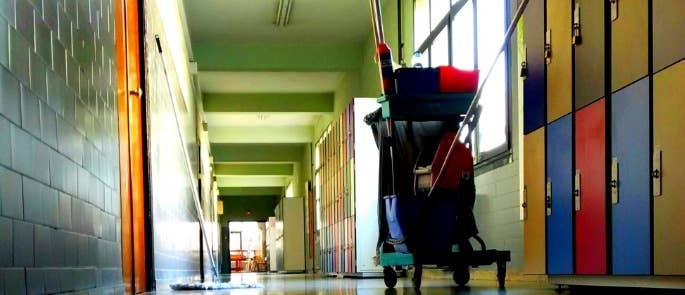
Ancillary roles are considered regulated in the above specified establishments if they meet these four conditions:
- The person carries out the work for 4 or more days in a 30-day period, or overnight (between 2am and 6am), with the opportunity for face-to-face contact with children.
- Their job gives them the opportunity for contact with children in the establishment.
- They work for the purpose of the establishment.
- The work is not temporary or occasional, and it is not a supervised volunteer role.
As mentioned earlier, anyone who is paid to carry out regulated work activities in a specified establishment, including ancillary roles that meet the conditions described above, is engaging in regulated activity, regardless of supervision. They must therefore receive an Enhanced DBS with a children’s barred list check.
You can find further advice on the supervision of regulated activities in the following government guidance document.
Regulated Activity for Safeguarding Adults
Regulated activities relating to adults are split into six different categories, based on the type of work they involve:
- Providing healthcare.
- Providing personal care.
- Providing social work.
- Assistance with general household matters.
- Assisting with a person’s own affairs.
- Conveying a person to a place of social work or care.
Unlike certain regulated activities involving children, these activities are regulated regardless of how many times and how often a person engages in them.

The activities are also not affected by where a person carries them out. They apply equally to those working in hospitals, care homes, day care centres, prisons, and sheltered housing. They also apply to regulated activities carried out in the adult’s own home where relevant.
Use the dropdowns below to read about what these regulated activities involve.
Providing healthcare
Anyone that directly provides healthcare to an adult, or does so under supervision, is engaging in regulated activity.
This includes:
- Healthcare relating to both physical and mental health.
- Palliative care.
- Diagnostic tests and investigative procedures.
- Procedures similar to medical or surgical care but are not related to a medical condition. For example, cosmetic surgery and donating blood.
- Psychotherapy and counselling that the adult receives from a healthcare professional.
- First aid provided by people doing so on behalf of an organisation that exists for the purpose of first aid (such as St. John Ambulance Service). Therefore, this does not apply to people who are designated first aiders in a workplace but are primarily employed for a different purpose.
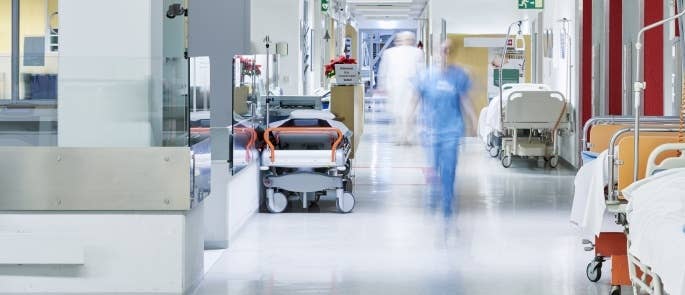
There are some exceptions to what qualifies as regulated healthcare. For example, staff in GP or dental surgeries who do not provide healthcare (such as receptionists) are not engaging in regulated activity.
Providing personal care
This includes a variety of activities relating to an adult who needs assistance due to their age, an illness, or disability, such as:
- Physically assisting the adult with eating, drinking, toileting, washing, dressing, oral hygiene, skincare, etc.
- Providing training, instruction, advice, or guidance to someone in relation to the above activities.
- Prompting an adult to do the above activities and supervising them while they do so.
There are some exceptions to these criteria. For example, if a person’s role is only to visit a care setting infrequently to cut residents’ hair, this is not regulated activity.
Providing social work
Any social workers who carry out tasks for clients or potential clients, including assessing or reviewing the need for services, are engaging in regulated activity. This must be in connection with a social or healthcare service. For example:
- Those that identify the needs of an adult in relation to any necessary adjustments to their lifestyle, housing, or healthcare.
- Those that provide information on services to adults in need of support, such as support groups and programs.

Assistance with general household matters
Those who provide general assistance to an adult (because of their age, illness, or disability) for the following tasks are engaging in regulated activity:
- Managing the person’s money.
- Helping to pay their bills.
- Shopping on their behalf.

Regulated activities relating to shopping do not include simply helping them write a shopping list.
Assisting with a person’s own affairs
Those who provide assistance to a person for the following activities is engaging in regulated activity:
- Lasting power of attorney (under the Mental Capacity Act 2005).
- Enduring power of attorney (within the meaning of the Mental Capacity Act 2005).
- Being appointed as the adult’s deputy (under the Mental Capacity Act 2005).
- Being an Independent Mental Health Advocate or Mental Capacity Advocate.
- Providing independent advocacy services (under the National Health Service Act).
- Receiving payments on behalf of that person (under the Social Security Administration Act 1992).
For example, these activities may include dealing with a bank, building society, or other financial account, or handling legal issues on behalf of the person.
Conveying a person
Anyone who transports an adult (because of their age, illness, or disability) to or from places for healthcare, personal care, or social work is engaging in regulated activity. These activities must be on behalf of an organisation and for the primary purpose of enabling the adult to access these services.
The type of roles this applies to includes:
- Porters (such as those who move patients on trolleys or in wheelchairs).
- Patient transport service drivers and assistants (such as those who drive ambulances and move patients in and out of them).
- Ambulance technicians and emergency care assistants.

Exceptions include licensed taxi drivers and licensed private hire drivers. It also does not apply to trips that have a purpose other than taking the person to receive healthcare, personal care, or social work.
Anyone who will engage in any of the activities from these 6 categories is eligible for an Enhanced DBS with an adult’s barred list check.
If you need further advice on regulated activities relating to adults, visit the following government guidance document.
You should now fully understand what type of work activities are regulated and eligible for Enhanced DBS checks (including children or adults’ barred lists). However, if you’re still uncertain, use the government’s DBS check tool to make sure you request the right checks and recruit safe people into your organisation.
What to Read Next:
- Guide to Safeguarding Children Legislation
- Care Home Risk Assessment Guide & Free Template
- Do I Need a DBS Check for Work?
- Online Safeguarding Training Courses


